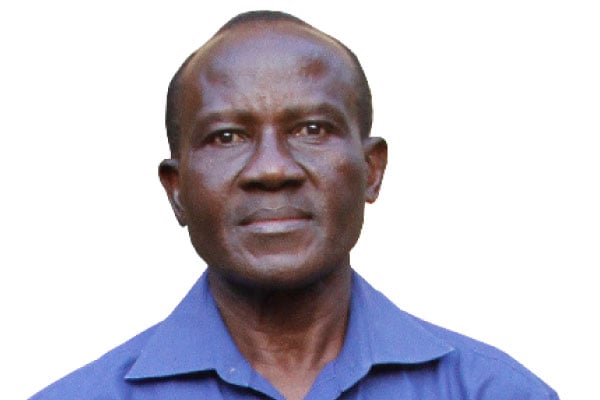Prime
Village thieves: Rebels or patriots?

Author: Alan Tacca. PHOTO/FILE
What you need to know:
- During the NRA Bush War in the Luweero Triangle in the early 1980s, the two young rogues – already in their 30s – were said to work with men in military clothes, identifying homes abandoned by war-displaced people and systematically stripping the houses there of their iron-sheet roofs.
Be careful. When habits persist, they may become traditions.
Kakoba was the most famous thief in our village when I was growing up. On the side, he was a bicycle repairer; a smart cover for a remover of poorly guarded articles, especially bicycles.
Kakoba had two sons and several daughters. The daughters were inconspicuous. But the sons quickly distinguished themselves as unauthorised removers of poorly guarded items.
During the NRA Bush War in the Luweero Triangle in the early 1980s, the two young rogues – already in their 30s – were said to work with men in military clothes, identifying homes abandoned by war-displaced people and systematically stripping the houses there of their iron-sheet roofs.
The accepted wisdom was that the men in uniform were soldiers of Milton Obote’s UPC government, confirming the narrative of a marauding savage government army.
However, subsequent accounts suggest that the truth may not be so black-and-white. Rebels often had the same clothes as the army. Some of the plunder could have been perpetrated by the rebels, with or without command approval. And a Kakoba could have worked with either side, or even both sides; a middleman shifting and disposing of war spoils for money.
Some Bush War veterans also admit that there were other crimes they committed and deployed their propaganda machine to attribute those crimes to the government army so as to discredit the UPC government.
Moreover, uninhabitable (de-roofed) houses created a pool of angry dispossessed people from whom more rebels could be recruited.
Higher up, the rebels were as a matter of policy involved in the robbery of banks, co-operative unions, military stores and other institutions. They even glorified the plunder on this larger scale.
On reflection, this weird tendency in NRM morality persists. NRM bigwigs, apologists and propagandists never tire of telling us how their army (now in power) does not rob, kill or harass individual citizens with impunity. Of course, what some of the generals have done to the national Treasury is ‘classified’ and therefore left to speculation.
And while acknowledging that plunder by other senior government people is on an industrial scale, the President has in effect cautioned the country’s ombudsman (IGG) not to get too excited, as long as the thieves invest their booty in the country!
Suddenly, we do not need much instruction to understand that we are being encouraged to perceive today’s grand thieves as patriots.
Remember, when habits persist they may become traditions.
As we have seen, in the 1980s, government soldiers and (possibly) NRA rebels, aided by village hoodlums, stole iron-sheets from existing peasants’ houses in the Luweero Triangle. Today, senior ministers and legislators invade government stores and steal iron-sheets meant for poor people in Karamoja. And insecurity has returned to the rural areas.
Apart from land grabbing aided by soldiers, livestock and farm produce thefts are rampant, with mob action sometimes the only recourse.
However, I am puzzled. Today’s renowned iron-sheet thieves are clearly patriots; that is why they have big government jobs. But the status of our village thieves is as unclear today as that of Kakoba’s children in the 1980s.
Are they on the government side? In other words, are they aspiring patriots who have not yet graduated to robbing from the Treasury and big government stores? Or are they liberators who have not yet formed a coherent rebel organisation?
Either way, the common grain is plunder. Thanks to the example of UPC soldiers, NRA guerrillas and current NRM practice, a tradition of marauding village gangs may have been established.
Mr Alan Tacca is a novelist, socio-political commentator.
[email protected]


